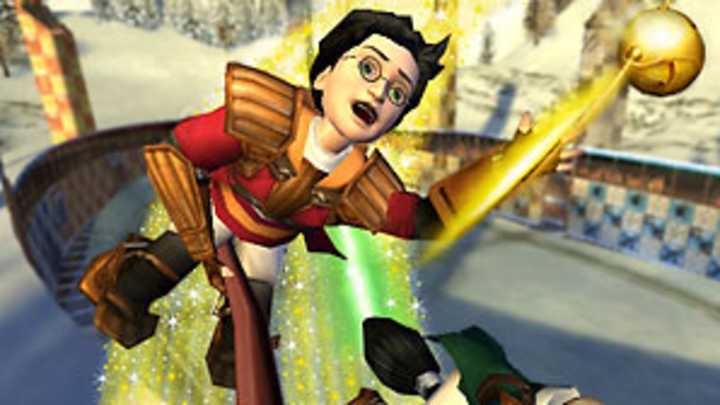The campus Quidditch craze


Cape-clad competitors banter as the referee instructs, "brooms up!" The game begins with a blur of yellow spandex as the Snitch explodes onto the field. Fierce competition ensues as the Hungry Hungry Hippogrifs battle the Mollywobbles.
Brooms balanced between their legs, the Seekers pursue the elusive Snitch, who enters the pitch (field) at random, taunting the Seekers with acrobatic antics in an effort to evade capture. All the while on Battle Beach, the elliptical-shaped field in the center of Vermont's Middlebury College quad, the Keepers protect their three free-standing hoops (goals) from score-seeking Chasers.
Originally played by Harry Potter and his companions in J.K. Rowling's phenomenally popular book series, Quidditch has become the newest craze on college campuses nationwide. In 2005, Middlebury senior Xander Manshel adapted the sports' rules so Muggles (Rowling's word for non-magical people) could play, and since then the game's popularity has grown to include more than 150 university teams. There's even a Facebook group boasting close to three thousand members.
As the sport's grown, so has the scope of competition. This spring, the Middlebury club took its first road trip, with matches against Vassar and Columbia. The team also hosted the annual Middlebury World Cup, where twelve uniquely-costumed teams of fourteen competed for the coveted trophy -- a gold-painted composition of party dishes, Tupperware, a vodka bottle and an assortment of owl, wizard and skull ornaments. The thirty-minute matches, which current Quidditch commissioner Alex Benepe refereed, drew over three hundred fans and even caught ESPN and CBS' attention. Benepe hopes to establish regular intercollegiate matches by fall 2009. This weekend, Middlebury will host eleven other schools from around the country for the two-day Intercollegiate World Cup.
By necessity, Manshel's version of Quidditch differs from the original. The Muggle adaptation feels more like a combination of rugby and dodgeball, but "the goal is to capture the spirit of the game as best we can, given that we don't have any magic," said Middlebury junior Benepe.
For starters, Muggles can't fly. A yellow-clad cross-country runner protecting the tennis ball-containing sock dangling from the back of his shorts stands in for the Snitch (which in the books is a tiny, winged golden ball that's lightning-quick). The match concludes when the Seeker yanks the tennis ball from the Snitch to gain 50 points. Positions are the same, but dodgeballs replace Bludgers and volleyballs replace Quaffles. Like with the magical version, Muggle players are allowed to knock and tackle one another, though fouls are rarely called. Despite the game's high-impact nature, Benepe claims there are no notable injuries to report. One player dislocated a finger during an icy match, but Benepe's never seen any broken bones.
Most competition takes place within each school, as students come out on Sunday afternoons to participate in scrimmages, but unlike most varsity and club sports there are no practices, tryouts or set teams.
While Quidditch has a firm following at Middlebury, some schools are struggling to get it off the ground. Funding is often scarce and fielding a team can be a daunting task, given the game's wackiness. Still, despite popular theory, players don't have to be obsessed with Harry Potter to play the game. "It is an unusual thing to do, and people playing look very silly during matches, said Elizabeth Doane, a sophomore at Boston University. "Unless word gets spread, people are just going to assume that it is a bunch of Harry Potter nerds drawing scars on their foreheads and waving wands."
